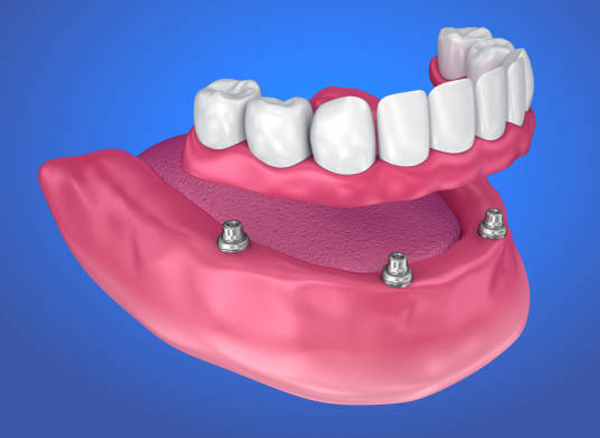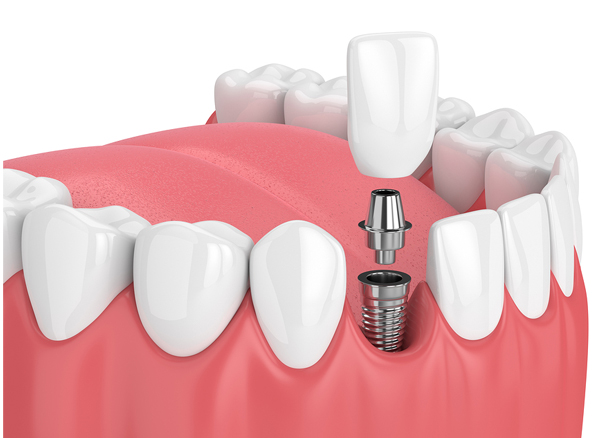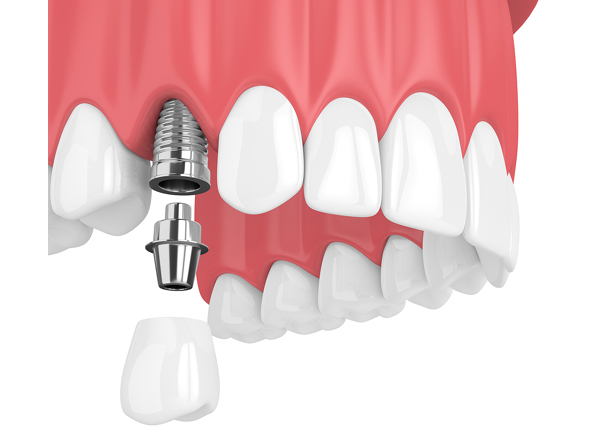
Dental Crowns Full Veneers (Time scale 3-4 months)
A dental implant is an artificial tooth root that is placed into your jaw to hold a replacement tooth or bridge. Dental implants may be an option for people who have lost a tooth or teeth due to periodontal disease, an injury, or some other reason. A single dental implant can support one, or several, replacement teeth – so you don’t need to have one implant per replacement tooth. Implants can also be used to support a full or partial set of dentures. We will carefully assess how many implants are needed in your circumstances. Dental implants are usually made of titanium and have an internal screw called an abutment that holds a false tooth (or teeth) in place. After the implant is fitted, the bone surrounding it gradually grows up and attaches to the implant, holding it firmly in place. Here at Dt. Şule Dülger's Dental Office, our dentists will choose one that’s suitable for you. The process of having dental implants can vary quite a lot, you will discuss with your dentist what will happen in your case. The process normally takes around three months to complete, consisting of two visits to the dental office. Depending on how many teeth you have missing will depend on the number of Implants you will need. Dental Implants can be used to replace any number of teeth - from a single missing tooth to full mouth restoration. Our expert dental team will tailor a treatment plan to suit your personal requirements. If you have a gap where 3 or 4 teeth are missing along the same row, we will place 2 Dental Implants (one at each end of the gap). These Implants will support a 3 or 4 Tooth Dental Implant Bridge. Alternatively, if you only have one tooth missing, we will place 1 single Dental Implant and Implant Crown. if this is something you are considering at Dt. Şule Dülger's Dental Office please contact us today our professional team will assist in choosing the best personalised treatment plan.
All on 4 Implant
To understand what a All-On-4 dental implant is, you first need to know what an implant is. A dental implant is basically a small (usually titanium) screw that’s inserted into your jawbone in the space left by a missing tooth. Once the implant is placed in your mouth, We can then attach a fake tooth/Crown to the screw. Now, multiply this idea by four and you get an All-On-4 dental implant. Instead of using an implant for every missing tooth, you can simply use four implants on top and four on the bottom as the main anchors. Then our dentist can attach a denture at those spots. One of the appeals of All on 4 is that magic little number, "4". A full set of upper or lower teeth on just 4 implants. Just 4 implants to be inserted, saving you time and money,minimal work, maximum results. While All on 4 implants are an amazing tool for many people, restoring an entire arch of teeth on 4 implants isn't the "go to" full arch implants option. Instead it's a fairly specific procedure that's really only suitable in a small fraction of cases. Dental implants is a situation where sometimes, more really is better. All on 4 implant treatment is a last resort treatment plan offered to our patients. this is only recommended to patients who have no remaining teeth inside their mouth and those who have weak or no bone structure left. There are many reasons why patients ask for this option. it can be the quickest and cheapest easy fix for a full set of teeth. however, there are many reasons why we do not offer this as a first treatment option. When teeth are all placed on the same day, you will not be able to test the teeth for their appearance, comfort, or bite. All-on-4 dental implants cannot be placed in the molar areas of the mouth where the bite force is greatest. Instead, it's often better to get what are known as a "Fixed Bridge". These procedures use 6-8 traditional, vertical l implants to support a bridge, on which the dental prosthetic (full set of upper or lower teeth) is then placed.More implants means more support across the entire arch of teeth. You get implants above the molars, which you don't get in All on 4. The molars undergo the most bite force of any teeth, so extra support here is invaluable. If one implant fails, you still have 5-7 implants supporting your teeth. Because All on 4 is designed to work with exactly four implants, failure in one means redoing almost the entire procedure. With All on 4 dental implants, two of the implants need to be angled to properly fit within the jaw. These angled implants cannot carry as much force as traditional, vertically-placed implants. So while All on 4 dental implants certainly sound like an attractive prospect to many, it's not always the best tool for the job. Bone volume plays a crucial role in eligibility for All on 4 (and any dental implant, for that matter). Without sufficient, healthy bone, implants can't fuse in place properly and provide support. Because All on 4 is anchoring an entire upper or lower teeth replacement on just 4 implants, they need to have very healthy bone to fuse into. Without that bone health and volume at the front of the jaw, the implants will likely fail. Likewise, if you have insufficient bone over your molars, you can't place traditional vertical implants there. Oftentimes, the dentist will have to do extra bone grafting or sinus lift to rebuild your molar jawbone. If you're desperate to get your mouth restored ASAP, then immediate load implants are what you're after. However, just because you want immediate load implants — and even if you're eligible for All on 4 — doesn't mean it's a good course of action. we'll discuss that in more detail with you during consultation.





